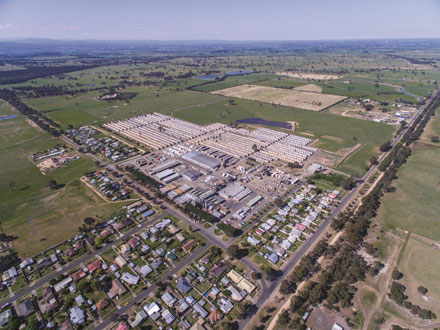
A job protection strategy underpins Victorian Labor’s purchase of Heyfield timber mill. That’s the message Premier Daniel Andrews wants to drill to voters even if it means taking the unprecedented step of the Government buying a beleaguered business. The deal will cost taxpayers more than $40 million. Sources: ABC News, Herald Sun
On Monday, the ABC broke the news that the Victorian Government would buy the Australian Sustainable Hardwoods mill in Heyfield in a bid to save some of the 250 jobs at risk. Heyfield timber millers fear up to 100 jobs will be lost despite an unprecedented government move to buy the Gippsland sawmill.
ASH chief executive officer Vincent Hurley said: “everything is still to be planned, but there will be no forced redundancies and now we have time to plan for the period of August 2018”.
“We are out of shutdown mode. We are in going mode,” Mr Hurley said.
The deal is due to be signed off in two to three weeks.
The company is shutting its doors because it cannot get the amount of timber from the state-owned VicForests that it says it needs to be viable. Labor and the Construction, Forestry, Mining and Energy Union (CFMEU), who have been busy lobbying MPs, believe the plant can operate on reduced supply.
There will be some jobs lost as part of the deal, how many is still to be revealed.
The decision to pour tens of millions into a timber mill is part of a broader pitch 16 months from an election that Labor will do what it takes to protect jobs. Especially regional blue-collar jobs.
And the fact that the town of Heyfield is 70 kilometres from the now closed Hazelwood mine in the Latrobe Valley meant the need to for real action was critical.
Marginal Morwell is being eyed off by Labor, with the Nationals holding it by just 1.8%. The chorus of voters across the western world demanding governments do more to protect local jobs has grown louder in recent years.
Labor hardheads are more than aware of the threat populism through groups like Pauline Hanson’s One Nation party looms to some of its working-class territory.
Government insiders stress the Premier, and Labor more broadly, are keen to be interventionist.
While buying a business is unique, helping out industry is not. Think car industry subsidies, continuing grants to manufacturing and aggressive local content procurement for major government contracts.
“We are going to look at a much bigger Keynesian approach, it is what the electorate wants,” one senior Labor figure said.
But the decision may hurt Labor in the inner city where environmentalists will ratchet up a campaign for national parks in the Central Highlands, a gift for the Greens eyeing off Richmond, Brunswick and Northcote.
Putting the politics aside, what value are taxpayers actually getting?
Agriculture Minister Jaala Pulford said the Government would do due diligence. It must be transparent. But Labor will not say how much taxpayers are chipping in to save the jobs in an industry that is already well supported by Government.
The Hermal Group bought the plant off Gunns in 2012 for $28.5 million which was mainly the cost of the stock on site.
The timber industry is at a critical juncture in Victoria. The impact of bushfires, protecting water catchments and the endangered status of the state’s emblem, the Leadbeater’s Possum, have forced VicForests to reduce supply for industry.
All parties acknowledge that to survive, the sector must move to plantation supply, but this takes decades.
Mr Andrews and his team clearly are backing on a future for timber jobs.
The elephant in the room is the Japanese-owned Australian Paper which employees more than 1000 people. It has guaranteed timber supply until 2030 under legislation created by the Kennett government and failure to provide wood would cost taxpayers in compensation.
If that business fails, then the Government would have a very real job crisis. Environmentalists will continue to argue against the industry, warning that all the best planning and subsidies mean nothing if a huge bushfire rips through the central highlands. And that is something the Government can do little to stop.







